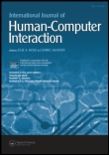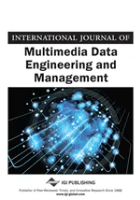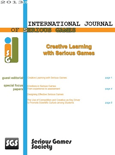
Frontiers in Virtual Reality
Scope & Guideline
Bridging Technology and Human Experience
Introduction
Aims and Scopes
- Interdisciplinary Applications of VR and XR:
The journal emphasizes the use of VR and XR technologies in various disciplines, including psychology, medicine, education, and urban planning, showcasing how these technologies can enhance understanding and interventions in these fields. - User Experience and Interaction Design:
A core focus is on understanding and improving user experience in VR environments, including studies on embodiment, presence, and the effects of different interaction techniques. - Therapeutic and Rehabilitation Applications:
The journal highlights research on the therapeutic uses of VR, particularly in mental health, rehabilitation, and pain management, emphasizing evidence-based practices and outcomes. - Technological Innovations and Methodologies:
It covers advancements in VR technology, including hardware developments, software applications, and innovative methodologies for evaluating VR experiences and interventions. - Social and Collaborative Aspects:
Research on social presence, collaboration in virtual spaces, and the impact of avatars and virtual agents on social interactions is a significant theme, reflecting the journal's interest in the social implications of VR.
Trending and Emerging
- Mental Health and Wellbeing Interventions:
There is a growing emphasis on using VR for mental health interventions, including therapies for PTSD, anxiety, and depression, highlighting the therapeutic potential of immersive environments. - Augmented Reality Integration:
Research exploring the integration of augmented reality (AR) with VR technologies is on the rise, indicating a shift towards mixed reality applications that enhance user experiences and interactions. - Social Virtual Reality Experiences:
Studies examining social interactions in virtual environments, including the dynamics of user presence and avatar representation, are trending as researchers explore the implications of social VR for community building and collaboration. - Real-World Applications of VR in Professional Training:
There is an increasing focus on the practical applications of VR in professional training across various sectors, including healthcare, military, and education, showcasing its potential for enhancing skill development and training outcomes. - Haptic Feedback and Multimodal Interactions:
Research on haptic feedback and other sensory modalities in VR is emerging, reflecting a trend towards creating more immersive and realistic experiences that engage multiple senses.
Declining or Waning
- Basic Sensory Perception Studies:
Research focusing solely on basic sensory perception in VR, such as depth perception and visual acuity, has decreased, possibly due to a shift towards more complex, integrative studies that consider emotional and social factors. - Traditional Gaming Applications:
There has been a noticeable decline in papers that focus exclusively on traditional gaming applications of VR, as the journal shifts towards more innovative and multidisciplinary applications, such as healthcare and education. - Hardware-Centric Research:
Studies that primarily focus on hardware specifications and comparisons have become less frequent, indicating a move towards exploring user experience and content-driven applications of VR technologies. - Single-Discipline Focus:
There is a waning interest in research that remains strictly within a single discipline, as the journal increasingly values interdisciplinary approaches that leverage VR in various contexts. - Static Virtual Environments:
The exploration of static virtual environments is declining, with a trend towards dynamic, interactive, and immersive experiences that engage users in more meaningful ways.
Similar Journals

INTERNATIONAL JOURNAL OF HUMAN-COMPUTER INTERACTION
Empowering the Next Generation of Interaction StudiesINTERNATIONAL JOURNAL OF HUMAN-COMPUTER INTERACTION, published by Taylor & Francis Inc, stands at the forefront of research within the interdisciplinary fields of human-computer interaction, human factors, and ergonomics. Since its establishment, the journal has consistently contributed to advancing the understanding of the interactions between people and computers, making it a vital resource for researchers, professionals, and students alike. With an impressive impact factor reflecting its high citation rate, this journal is recognized as a Q1 publication in both Computer Science Applications and Human Factors and Ergonomics categories for 2023, showcasing its stature within the academic community. Additionally, it boasts a commendable ranking within the top percentiles in key areas on Scopus, ensuring that the research published here reaches broad scholarly audiences. Available in traditional subscription format, the journal covers seminal studies from 1989 to 2024, reflecting ongoing innovation in technology and its applications in everyday life, and thus serves as an essential platform for pioneering research that shapes the future of user experience.

ACM Transactions on Applied Perception
Fostering Interdisciplinary Dialogue in Perception ScienceACM Transactions on Applied Perception is a leading journal published by the Association for Computing Machinery, focusing on the intersection of perception science and computational methods. With an ISSN of 1544-3558 and an E-ISSN of 1544-3965, this esteemed publication has been a vital resource for innovators and researchers since its establishment in 2004. It operates within the ambit of Computer Science and the realms of Experimental and Cognitive Psychology, boasting a commendable impact factor and category rankings, including Q2 in Computer Science (miscellaneous) and Q3 in both Experimental and Cognitive Psychology and Theoretical Computer Science. The journal's scope encompasses a plethora of studies aimed at understanding human perception through computational lenses, making it an essential platform for scholarly exchange. Although it does not currently offer an Open Access option, its extensive reach and rigorous peer-review process ensure high visibility and impact in the academic community. By fostering collaboration across disciplines, ACM Transactions on Applied Perception encourages advancements that bridge perceptual research with practical applications, making it invaluable for researchers, professionals, and students engaged in this dynamic field.

Reti Saperi Linguaggi-Italian Journal of Cognitive Sciences
Connecting Minds: The Intersection of Language and BehaviorReti Saperi Linguaggi - Italian Journal of Cognitive Sciences is a distinguished academic journal dedicated to advancing the field of cognitive sciences through interdisciplinary research that spans behavioral neuroscience, communication, linguistics, and developmental biology. Published by SOC ED IL MULINO, this journal has been an essential platform for scholars aiming to understand the intricate relationships between language, cognition, and social interaction since its inception in 2019. With an ISSN of 1826-8889 and an E-ISSN of 2279-7777, it is available in print and online formats, although it does not currently operate under an open access model. As of 2023, it holds a Q3 rating in Linguistics and Language, and Q4 ratings across other significant categories, signifying its emerging presence within the academic community. The journal's Scopus rankings reflect its dedication to high-quality research, positioned in the 57th Percentile in Arts and Humanities and 53rd in Social Sciences. Located in Bologna, Italy, Reti Saperi Linguaggi aims to promote critical discourse and facilitate collaboration among researchers, professionals, and students, making it a vital resource for anyone interested in the cognitive aspects of language and beyond.

Journal on Multimodal User Interfaces
Advancing User Experience Through Multimodal InsightsJournal on Multimodal User Interfaces, published by Springer, serves as a vital platform for scholarly exchange in the rapidly evolving fields of Human-Computer Interaction and Signal Processing. Established in 2008 and continuing through 2024, this journal maintains a high profile in academia, currently ranking in the Q2 category for both fields, indicating its significant contribution to ongoing research and practical applications. With its Scopus rankings placing it at #34 in Signal Processing and #49 in Human-Computer Interaction, it is recognized for publishing high-quality, impactful research. Although it is not an Open Access journal, the Journal on Multimodal User Interfaces remains accessible through institutional subscriptions. Researchers, professionals, and students will find the journal an essential resource for advancing knowledge and fostering collaboration in multimodal interaction technologies, which are crucial for enhancing user experience and developing intelligent systems.

GetMobile-Mobile Computing & Communications Review
Advancing Insights in Mobile ComputingGetMobile-Mobile Computing & Communications Review, published by the Association for Computing Machinery (ACM), is a leading journal dedicated to the evolving field of mobile computing and communication technologies. With an ISSN of 2375-0529 and an E-ISSN of 2375-0537, this publication serves as a vital resource for researchers, professionals, and students, providing insights into the latest advancements, trends, and challenges in mobile technology. The journal covers a comprehensive range of topics, including but not limited to mobile networks, communications protocols, mobile applications, and edge computing, making it invaluable for those in academia and industry alike. Although specific metrics such as impact factor and H-index are currently unavailable, GetMobile is recognized for fostering innovative research and promoting knowledge exchange in mobile and computational communications. As the field continues to grow, this journal remains pivotal for disseminating impactful studies and practical applications that drive the future of mobile technology.

Visual Informatics
Leading the Charge in Computer Graphics InnovationVisual Informatics is a premier academic journal published by Elsevier, dedicated to advancing the fields of computer graphics, computer-aided design, and human-computer interaction. Since its launch in 2017, this Open Access journal has swiftly established itself as a leading platform for innovative research, reflected in its impressive impact factor and robust rankings in various Scopus categories. In 2023, it proudly holds positions in the top quartile (Q1) for Computer Graphics and Computer-Aided Design, Human-Computer Interaction, and Software, showcasing its influential contributions to these dynamic fields. Based in Amsterdam, Netherlands, Visual Informatics encourages the dissemination of high-quality, peer-reviewed articles that explore the intersection of visual technology and user experience, serving as an invaluable resource for researchers, professionals, and students seeking to stay at the forefront of these evolving disciplines.

International Journal of Multimedia Data Engineering & Management
Exploring the Frontiers of Multimedia Data InnovationInternational Journal of Multimedia Data Engineering & Management, published by IGI Global, is a pivotal platform for the dissemination of knowledge in the fields of multimedia data engineering, information management, and technology-driven methodologies. With a keen emphasis on exploring innovative approaches to data management, this journal engages researchers, professionals, and students interested in the rapidly evolving digital landscape. Although currently not designated as Open Access, the journal is accessible through institutional subscriptions, fostering rigorous academic dialogue and collaboration. The ISSN for this esteemed publication is 1947-8534 (E-ISSN: 1947-8542), ensuring its global reach and recognition within the scholarly community. By bridging theoretical perspectives with practical applications, the International Journal of Multimedia Data Engineering & Management supports ongoing advancements and drives impactful research in multimedia technologies.

Computers
Exploring Networks and Communications for TomorrowComputers is a leading journal published by MDPI, dedicated to advancing research in the fields of computer networks and communications, as well as human-computer interaction. Since its inception in 2012, it has established itself as a vital resource for scholars and practitioners, achieving an impressive Q2 ranking in Computer Networks and Communications and a Q3 ranking in Human-Computer Interaction as of 2023. The journal is indexed in Scopus, highlighting its relevance with a rank of #135/395 and #72/145 in their respective categories. Published in Switzerland, this open-access journal ensures widespread dissemination of research findings, supporting the global academic community in enhancing technologies relevant to computer science. Access options are available, fostering an environment where knowledge is shared freely. With an emphasis on innovation, redesign, and collaboration between humans and technology, Computers plays a crucial role in shaping the future of digital interactions.

International Journal of Serious Games
Pioneering Interdisciplinary Insights in Serious GamingThe International Journal of Serious Games is a pioneering publication dedicated to advancing the interdisciplinary field of serious games and their application in various domains such as education, artificial intelligence, and human-computer interaction. Published by SERIOUS GAMES SOC in Italy, this Open Access journal has been facilitating unrestricted access to innovative research since 2014. The journal is recognized for its quality, achieving prominent rankings in its categories, including Q2 in Education and Q2 in Computer Graphics and Computer-Aided Design as of 2023. With its commitment to academic rigor, it places itself as an essential resource for researchers, professionals, and students seeking to explore the transformative potential of serious games. Housed at the IST INT COMUNICAZIONI, VILLA PIAGGIO, GENOA, the journal continues to foster knowledge sharing and collaboration across disciplines, enriching the global discourse on gaming for impact.

VIRTUAL REALITY
Unlocking New Realities Through Cutting-Edge ResearchVIRTUAL REALITY is a prestigious journal published by SPRINGER LONDON LTD that has been at the forefront of the field since its inception in 1995. This journal, with an ISSN of 1359-4338 and E-ISSN 1434-9957, serves as an indispensable resource for researchers, professionals, and students interested in the rapidly evolving domains of computer graphics, human-computer interaction, and software development. VIRTUAL REALITY holds an impressive Q1 ranking across relevant categories, reflecting its high impact within the academic community, with specific rankings such as 11th overall in Computer Graphics and Computer-Aided Design and 31st in Human-Computer Interaction. This journal aims to publish cutting-edge research that explores theoretical advancements and practical applications related to virtual environments, contributing significantly to knowledge and innovation. With access options available through institutional subscriptions, it continues to shape the landscape of its field and inspire future research in immersive technologies.